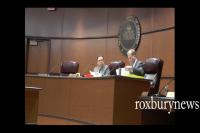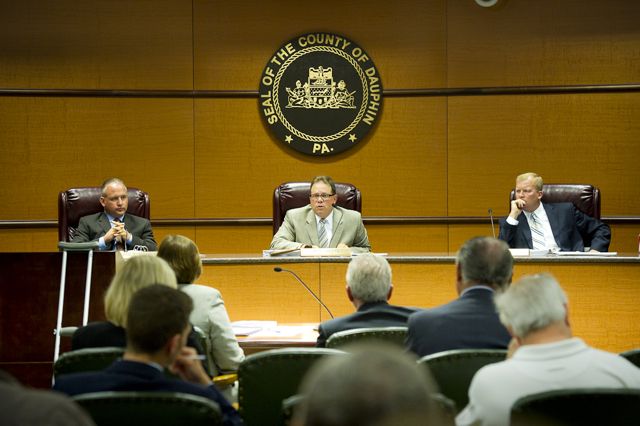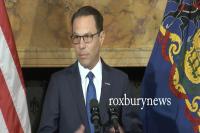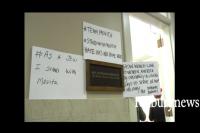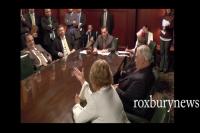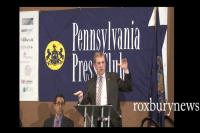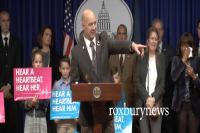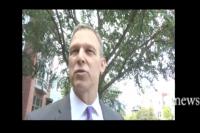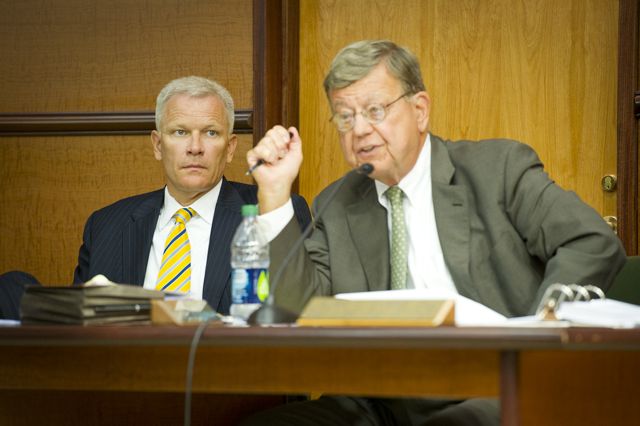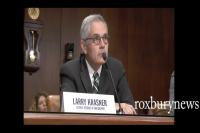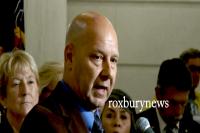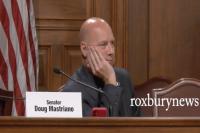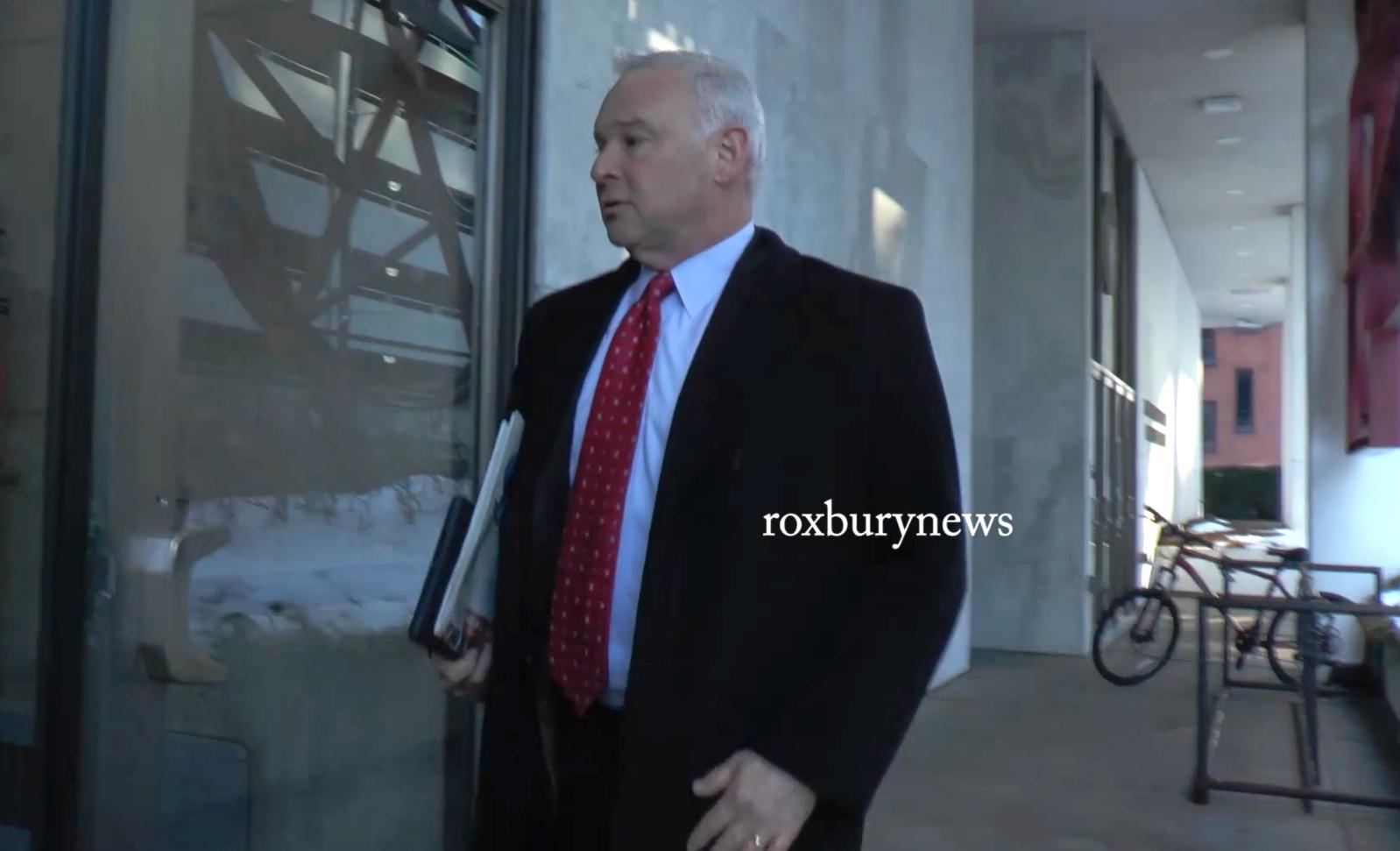Former Pa. state treasurer Rob McCord began his third day on the witness stand under cross-examination by defense attorney Reid H. Weingarten.
McCord testified for several hours as court adjourned at 1:30pm Friday, he is scheduled to appear again Monday at 9am.
Richard Ireland enters Ronald Reagan Federal Building Friday morning.
Ex-state Treasurer Rob McCord Friday March 17, 2017.
Transcripts Of Telephone Conversation Of Robert McCord And Richard Ireland.
_____________________
Archive Thursday 21, 2016.
As released by the Department of Justice
United States Attorney
Middle District of Pennsylvania
HARRISBURG – The United States Attorney’s Office for the Middle District of Pennsylvania announced today that as a part of the ongoing investigation into pay-to-play activities at the Pennsylvania Treasury, a grand jury in Harrisburg has indicted a Valley Forge business owner for making hundreds of thousands of dollars in secret campaign contributions to the Pennsylvania Treasurer in a bid to influence the awarding of hundreds of millions of dollars in Pennsylvania state investments.
According to First Assistant United States Attorney Dennis Pfannenschmidt, Richard W. Ireland, age 79, of Coatesville, was indicted for secretly making over a half-million dollars in campaign payments to former Treasurer of Pennsylvania Robert M. McCord as part of a seven- year long bribery scheme designed to influence investment decisions at Treasury and the State Employees Retirement System (SERS). Ireland also promised to put McCord on “his payroll” after he left office in exchange for McCord’s influence. The secret campaign contributions were made during McCord’s two campaigns for Pennsylvania Treasurer and in his unsuccessful 2014 bid for Governor of Pennsylvania.
The investigation revealed that Ireland used straw campaign contributors to support McCord’s campaigns. At least $375,000 in campaign contributions were funneled through charities to conceal from the public that Richard Ireland was the true source of McCord’s campaign contributions. Hundreds of thousands of dollars in other campaign contributions were funneled through employees, who as straw campaign donors, hid Ireland as the true source of the campaign contributions. Between 2009 and 2014, over $500,000 in secret campaign contributions were given to McCord.
These secret campaign contributions were given in exchange for McCord’s official decisions to continue to invest in businesses affiliated with Ireland. These businesses had contracts with the Pennsylvania Treasury to manage hundreds of millions of dollars in Pennsylvania state assets. Because of fee sharing agreements, these businesses paid Ireland as much as 50% of all the fees they received from Pennsylvania Treasury. Over the years of this scheme, Ireland and these related businesses earned over $10,000,000 in fees.
First Assistant U. S. Attorney Pfannenschmidt was designated United States Attorney for this case because United States Attorney Peter J. Smith recused himself. Mr. Smith previously worked for former Treasurer Robert M. McCord for a short period of time at the Pennsylvania Treasury Department.
This case was investigated by the Federal Bureau of Investigation, the Internal Revenue Service, and the Pennsylvania State Police. The case is assigned to Assistant United States Attorneys Michael A. Consiglio and William S. Houser.
Indictments and Criminal Informations are only allegations. All persons charged are presumed to be innocent unless and until found guilty in court.
A sentence following a finding of guilt is imposed by the Judge after consideration of the applicable federal sentencing statutes and the Federal Sentencing Guidelines.
The maximum penalty under federal law is 20 years of imprisonment, a term of supervised release following imprisonment, and a fine for each of the bribery charges brought against Richard Ireland. The false statements charge has a maximum 5 years of imprisonment as well as a fine and a term of supervised release. Under the Federal Sentencing Guidelines, the Judge is also required to consider and weigh a number of factors, including the nature, circumstances and seriousness of the offense; the history and characteristics of the defendant; and the need to punish the defendant, protect the public and provide for the defendant's educational, vocational and medical needs. For these reasons, the statutory maximum penalty for the offense is not an accurate indicator of the potential sentence for a specific defendant.
photo Rob McCord


